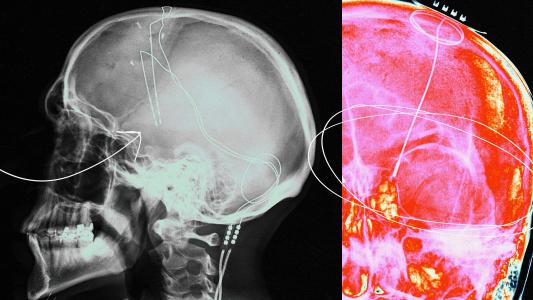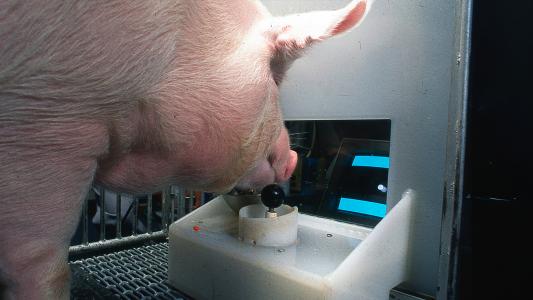Neuroscience
Study: chronic pain’s root cause could be a process in the brain
Understanding that chronic back pain originates from within the brain could lead to quicker recovery, a new study finds.
Neurosoft CEO says new brain implant is “basically 1,000 times softer” than anything on the market
Swiss startup Neurosoft’s flexible brain implant could give us a better way to analyze and stimulate the brain.
Zapping injured brains can improve cognition and memory
The lasting symptoms of a traumatic brain injury (TBI) can be treated with deep brain stimulation, according to a first-of-its kind trial.
How language and social status change the developing brain
Research shows that a child's early environment and socioeconomic status (SES) impact their language development and processing skills.
Human brains have a remarkable ability to rewire themselves following injury
Every brain injury is unique, as is every person’s path to recovery. A concussion specialist explains the science behind rehabilitation and recovery.
A new machine is able to keep the brain alive without a heart
A new device that lets scientists precisely control the brain's blood supply could lead to new neuroscience breakthroughs.
What is brown noise? Can this latest TikTok trend really help you sleep?
Brown noise, the better-known white noise, and even pink noise are all sonic hues. But do any of them actually work?
Human sleep patterns appear to change with the seasons
Researchers observed the sleep of 188 subjects to see if their slumbers would change in duration and structure along with the seasons.
Pigs proven intelligent enough to play video games
A quartet of porcine subjects at the Purdue Center for Animal Welfare Science learned to play a simple video game.
How do stimulants actually work to reduce ADHD symptoms?
Stimulant drugs are thought to alter the activity of key neuotransmitters, dopamine and noradrenaline, in the brains of people with ADHD.









